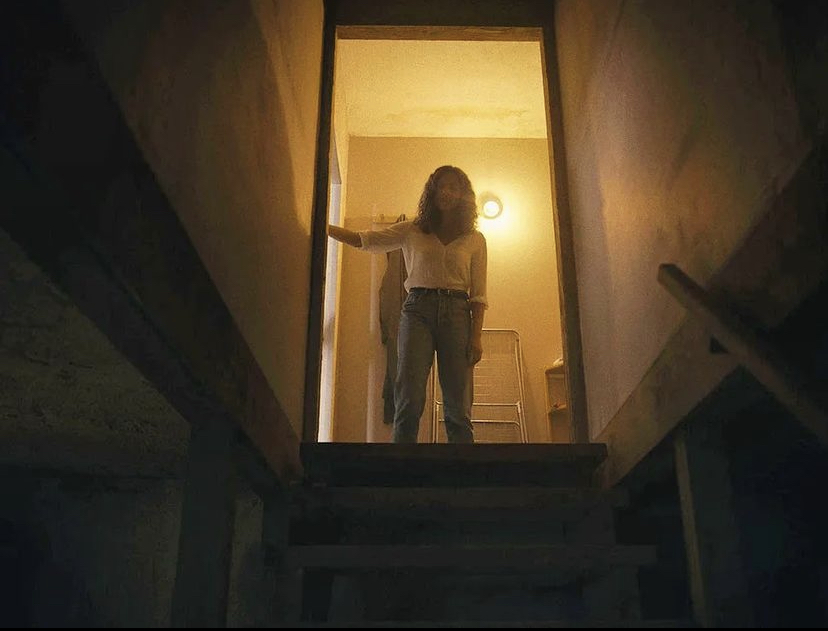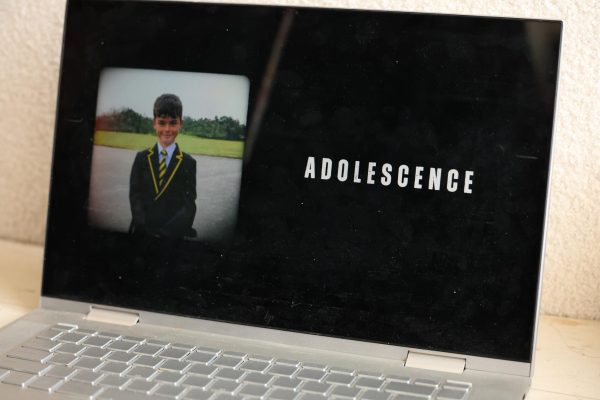More Than Meets the Eye in “Barbarian”
*CONTAINS SPOILERS*
What could go wrong when it’s midnight and a young woman discovers that her Airbnb is double-booked in a rundown Detroit neighborhood? Director Zach Cregger, masterfully establishes this menacing scene as the primary setting and jumping off point in his highly-anticipated thriller, “Barbarian.” While this horror movie contains the haunting elements one might expect such as underground tunnels, an abandoned neighborhood and a bone-chilling soundtrack, it also contains social commentary about male privilege, gender inequality and female empowerment. This subtle narrative is discreet enough to go over one’s head if they aren’t paying attention, but blatant enough for inclined viewers to dig deeper.
I might quickly compare “Barbarian” to a Jordan Peele film. Peele’s projects often present themselves as one thing but later reveal themselves to be much more. There is actually a comedic reference to Peele’s latest feature “NOPE” in Cregger’s film when the main character, Tess Marshall (Georgina Campbell), walks away from a pitch-black doorway and mutters “nope” to herself. Peele explains that his characters say “nope” to poke fun at the typical white women in horror films who call out “hello” in a dark room. Similar to Peele’s films, “Barbarian” requires patience and an open mind. “Barbarian” has three storylines that may cause audiences to feel like there is no final destination to all the forks in the road. I felt this way initially, but my grievances were satisfyingly dissolved by the film’s close.
The first storyline follows a naive Tess as she ventures to Detroit for a job interview. It is pitch black outside and pouring rain when she pulls up to her isolated Airbnb on Barbary Street, only to find that a man named Keith (Bill Skarsgård) is already residing in the home. The camera framing in this initial scene is brilliant. Tess is made to look small, so that everything around her seems more daunting. Skarsgård towers over Campbell as she stands before him on the porch. After trying to reach the homeowner and having no luck, Keith and Tess begin awkwardly conversing on the couch. I thought this was a perfectly unsettling way to begin the thriller. The dim lighting casting eerie shadows, the slow pans to Skarsgård and Campbell’s facial expressions and the low-vibration music in the background are enough to send a wave of unease throughout the theater.
When watching the first 20 minutes, most viewers assumed that Skarsgård would be a creep, luring Marshall inside to take advantage of her. Spoiler alert: he turns out to have no ulterior motive, but what does our universal presumption say about society? Cregger implores audiences to ponder gender roles in his film, and Skarsgård does an impeccable job of playing the warm but unknowingly entitled man who is friendly enough to make Tess laugh, but creepy enough to put her and the audience on edge. Elaborating on gender roles, Tess tells Keith during their conversation that had the roles been reversed, she would have never allowed him into the Airbnb. At first, Keith takes personal offense, but after some probing he understands how letting some strange man into the rental home would be terrifying for a woman.
Without giving too much away, the two characters eventually find themselves in the Airbnb’s secret underground tunnels, and the viewer gets the inkling that they are not alone. We have seen this idea play out before, most notably in Bong Joon-Ho’s “Parasite.” I think the notion of not being alone in one’s home or being unaware of another sector of one’s home is one of the most horrifying but imaginative concepts. I applaud Cregger for creating another story with that element.
The concurrent storyline in “Barbarian” shows AJ Gilbride (Justin Long) as he falls under scrutiny following severe sexual assault allegations. Along similar lines, Cregger reminds viewers to examine their existing notions of people and the kinds of morals we associate with them before truly knowing their character. I had to catch myself automatically associating the truth to AJ’s story before hearing the woman’s side. Long geniusly plays AJ’s blatantly entitled “alpha male” character, as his arrogance and privilege leads him astray. I questioned how Long’s storyline related to Keith and Tess’s, but the viewer eventually sees how the two intersect. My one critique on this section is that the transitions between storylines come out of nowhere, and it took me a while to shift focus. These sharp cinematic turns are why I encourage viewers to be patient while watching.
The final storyline takes the viewer to the past where the viewer meets the menacing Everett (Zach Cregger). This storyline is the scariest in my opinion, but it nicely wraps the other two together into a bigger look at the effects of male privilege in society.
Therein lies the question of who or what is the “Barbarian” in the “Barbarian?” That is up to each viewer to decide. The answer is not glaringly obvious, and I am sure that several viewers left the theater without a solid idea. Fortunately, Cregger leaves us several Easter eggs as to the true meaning of the Barbarian for audiences seeking to engage more. The name “Barbarian” itself is a double entendre. Of course, the street the Airbnb is on is called “Barbary street,” meaning that any resident is a “Barbarian.” There are also several characters who fit the definition of “Barbarian” — someone uncivilized or primitive. However, in my interpretation, “Barbarian” refers to the overarching theme of male privilege in the film. Part of the fun is determining that answer for yourself. Ultimately, “Barbarian” is a fantastic horror film that takes a few of our favorite elements of horror and combines them into one. Its commentary does not overshadow the film’s horror aspects which gives viewers the ability to engage as much as they like.













































































































































































































